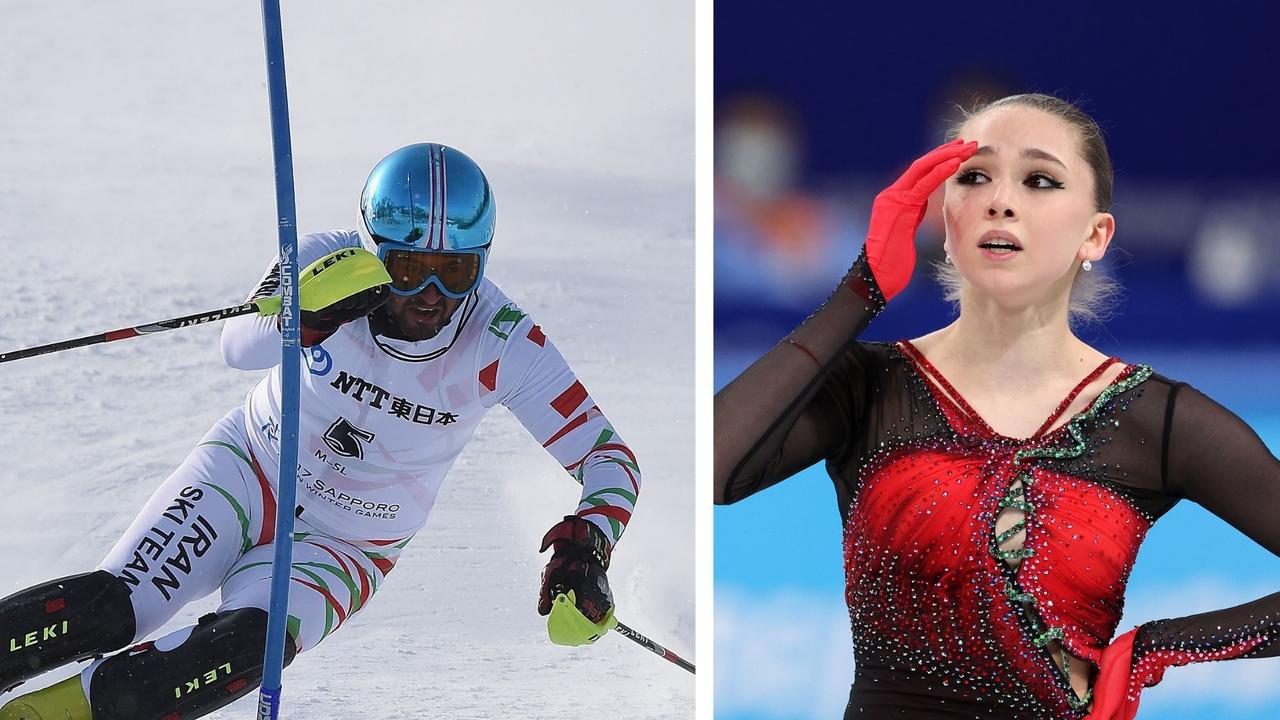
Iranian alpine skier Hossein Saveh Shemshaki has been suspended from the Beijing Olympics after testing positive for an anabolic steroid, the International Testing Agency (ITA) said, the first publicly announced doping case at the Games.
The 36-year-old, who has never competed on the World Cup circuit and whose best Olympic result was 31st in the slalom at the 2014 Sochi Games, tested positive in an out-of-competition test on February 7 in Beijing, according to the ITA.
“The athlete has been informed of the case and has been provisionally suspended until the resolution of the matter in line with the World Anti-Doping Code and the IOC Anti-Doping Rules applicable to the Olympic Winter Games Beijing 2022,” the body said in a statement.
“This means that the athlete is prevented from competing, training, coaching or participating in any activity during the Olympic Winter Games Beijing 2022.”
The Iranian has the right to challenge the ruling before the Court of Arbitration for Sport and also to request the analysis of the B-sample.
Shemshaki’s positive test is the second for Iran in Olympic history after that of weightlifter Mohamad Nasehi Ar Jomand, who tested positive for ephedrine at the 1972 Munich Games.
The positive test could cost Russia the team gold and also threatens Valieva’s participation in the individual event that starts on Tuesday.
Russian athletes are competing in the Beijing Games as the Russian Olympic Committee (ROC) after the country was banned because of a massive state-sponsored doping scheme at the 2014 Sochi Olympics.
The sample in question was obtained before Valieva won the European championship last month, the RBC newspaper reported late Wednesday.
The drug detected is trimetazidine, a metabolic agent that is prescribed for the treatment of angina and vertigo, according to Kommersant newspaper.
It is banned by the World Anti-Doping Agency because it can increase blood flow efficiency and help endurance.
Russian journalist Vasily Konov, deputy general producer at sports channel Match-TV, addressed the reports on social media.
“The drug trimetazidine does not help an athlete in any way. At all. It was found in one single sample in December. A minuscule amount. Nothing in her samples before or since,” he wrote.
“There is no doping in the conventional sense. No! This cardiac drug has no impact on … performance. Now leave Kamila in peace.”
The reports said the test result was the reason that the team medals ceremony was removed from its scheduled slot on Tuesday.
The Russians won the gold medal in the team competition with the United States taking silver and Japan bronze, but the ceremony did not take place as planned.
International Olympic Committee spokesman Mark Adams said on Thursday an “active legal case” was under way concerning the medal ceremony and so he could not comment on the reports.
He said claims that the case concerned doping were “speculation”. “We had a situation arise yesterday that has all sorts of implications,” he added.
Asked how long the athletes in the team competition would have to wait to receive their medals, Adams said: “It depends on the legal process and I would imagine everyone is working as quickly as they can.
“We understand for the athletes involved (in the ceremony) that they want to see this come to a good outcome.”
